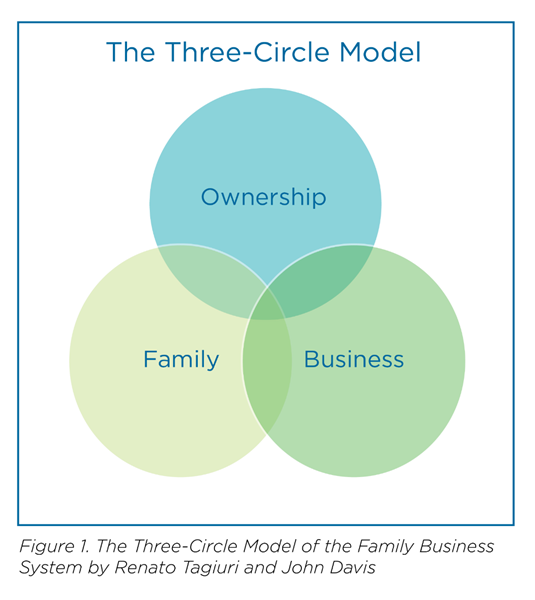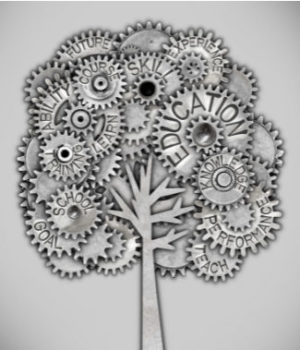“Legacy is not what I did for myself. It’s what I am doing for the next generation.”
Vitor Belfort
When it comes to ownership succession, many business-owning families spend thousands of dollars on attorneys, accountants and financial planners to help create a plan for future generations. However, this is only the beginning of transitioning the family for future ownership. The rest of the work lies in preparing the emerging generations as lifelong learners passionate about maintaining the health and prosperity of the family business system: family, business management and ownership. This can be achieved by empowering families to plan and implement family ownership education plans.

Where should you start with family business education? Historically, family business owners send their family, ownership group and nonfamily executives to learning opportunities at conferences, family business centers or educational programs like FBCG’s Family Governance Forum. To supplement these opportunities, we encourage owners to build learning and training programs for internal education. Individualized educational programs for their family, ownership and business systems will accelerate their learning objectives, create a unified vision for the plans, allow for team enhancement and provide bonding opportunities.
In our work with clients, we start by helping families understand what skills are needed to support multiple generational ownership of the family business. The concepts should address the family, business management and ownership systems that family business owners balance daily. Below are examples of how we’ve helped other families build skillsets and tailor the learning to the needs of their systems.
Leadership Skills
We hear this often from family owners: “I need my daughter to be a leader when she takes the helm.” When mom is asked where she got her own leadership skills, the answer usually is: the School of Hard Knocks. Instead of enrolling in Hard Knocks, we try to help mom define what leadership looks like for each generation and then envision what leadership will look like in the future. It’s important to begin by studying and aligning the generational perspectives. From there, we can define which skills the daughter should acquire to be a leader in the current generation’s eyes.
Defining and preparing business leaders today looks very different than it was in 1980. Leadership researcher Dr. Brené Brown asked successful CEOs what about the way people are leading today needs to change to be successful in a complex, rapidly changing environment. The top answer was “braver leaders and more courageous cultures.”1 When asked what courage is, the same respondents all had different answers. Brown defines courage as the ability to speak honestly and openly about who we are and about our experiences. She also teaches that delivering feedback to those we ask to courageously follow us is an essential leadership skill for future generations.
Ownership Skills
Successful continuity planning includes preparing the emerging generation with some basic ownership knowledge including business financial accruement, negotiation skills, interpersonal communication skills, industry awareness, emotional intelligence, governance abilities, role awareness and brand awareness. What a long list!
Do not get too overwhelmed. Through our work, we help families design a learning system to address the “hows” and “whys” of these skills. For example, many families have their CFO teach the emerging generation financial literacy topics such as balance sheets, profit and loss statements and capital expenditures. We also encourage emerging owners to shadow a family board meeting, complete internships, participate in industry programs and join peer learning opportunities for next-generation owners.
Family Continuity
Many business-owning families aspire to leave a legacy of family values, create an appreciation of family history and continue a healthy family system. They want to teach the next generation how to align and define their generation’s family values — and be aware how these values will impact the family business. Families also want to preserve the past but encourage innovation and the beauty of being entrepreneurs.
The family education component can be implemented in the context of family governance planning and is stimulating and challenging work to do with young adults. Ideally, families can begin as the emerging generations start primary school and plan to increase the skills and involvement that tracks the development of the children into early adult years and beyond.
The Educational Process
When creating an educational process for children in the family, the first step is to design the learning objectives for each age group. What are the minimum skills required? Which concepts are appropriate for the learners? What are envisioned skills for the growth and continued improvement of all three circles, to envision what skills would enhance the family, ownership group and business? What will the emerging generation need that the current owning generation did not? To help shape learning objectives, we then ask what a family does not want to see in the way the next generation approaches their proposed roles in the family and the business.
Once we have established the learning objectives, we explore creating a learning methodology for each age group in the family system to transfer theory into application and experiences. This process aims to examine the type of learners we have from a developmental perspective and design the delivery of the concepts in a method that works for every kind of learner. Not everyone learns alike, learners have different styles of learning: visual (imagery), auditory (listening), print (note-takers), tactile (hands-on), interactive (group projects), and kinesthetic (must move to learn). Customization is the fun part for all because it is creative and individualized for what the children and teenagers need. Learning opportunities range from activities that hold the attention of preschoolers to the engaging audiovisual needs of teens. Families have also seen success with teens serving as mentors to the younger children.
The needs and requirements for adult learning are different from those of children. Adults need to know the “why” behind the exploration and education experience. They need to know the learning goals and objectives. Most adult learners prefer to explore the subjects and concepts alone and in their own space before engaging in group learning. They also benefit from connecting past experiences and personal expertise to the new topic so they can retain and own the new concepts. Creating opportunities to practice and repeatedly apply these concepts helps develop new habits. After understanding the learning objectives and type of learners to accommodate, lesson plans can be developed to break concepts into manageable segments for application.
Finally, explore your opportunities for delivering education where and when your family can best receive it. When designing this section of the learning, explore pacing between learning segments and creating platforms that allow for individual reading and exploration. Also, consider what could be provided remotely, and which concepts need to be delivered through live in-person learning. Most families like to map out this process in one-, three- and five-year increments depending upon the ages and stages of learners.
Conclusion
At FBCG, we believe every family has unique characteristics but common pain points that can be reduced or eliminated through education and system support. We encourage the inclusion of all generations in the family system’s education process as soon as possible. We discuss with our clients what each family member is ready to receive and what each business needs. The articulation of appropriate business requirements and clear ownership developmental goals is a critical first step with each client. Determining why and how to bring in the next generation into the education process is best accomplished in a collaborative discussion. Regardless of age or stage of career development, individuals who are the subject of an education must agree to participate for the process to be successful.
1 “Brené Brown Asked Senior Leaders This Tough Question” Inc., March 28, 2019

